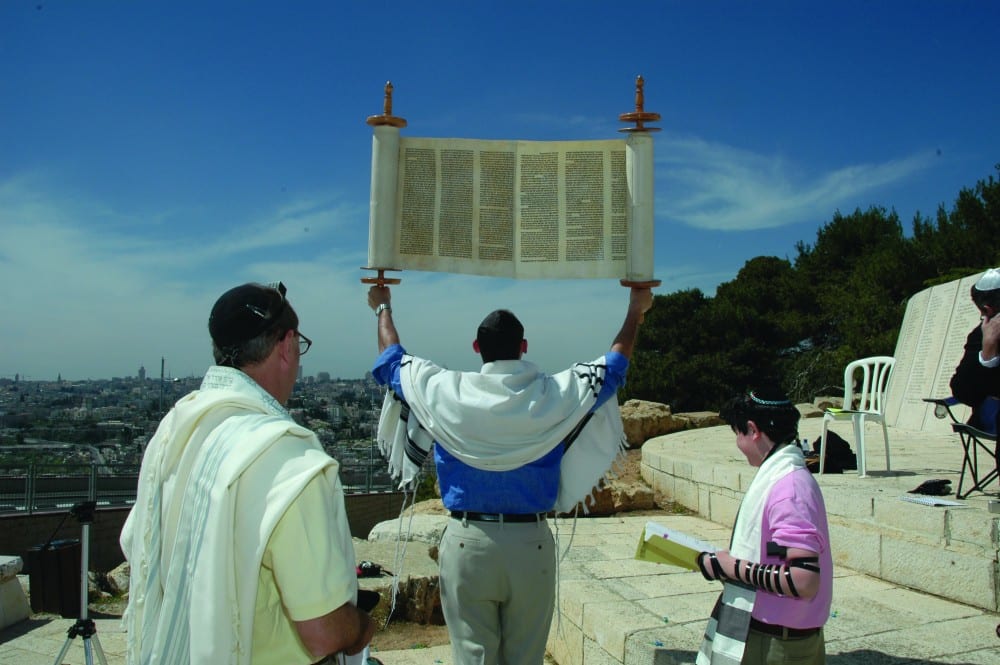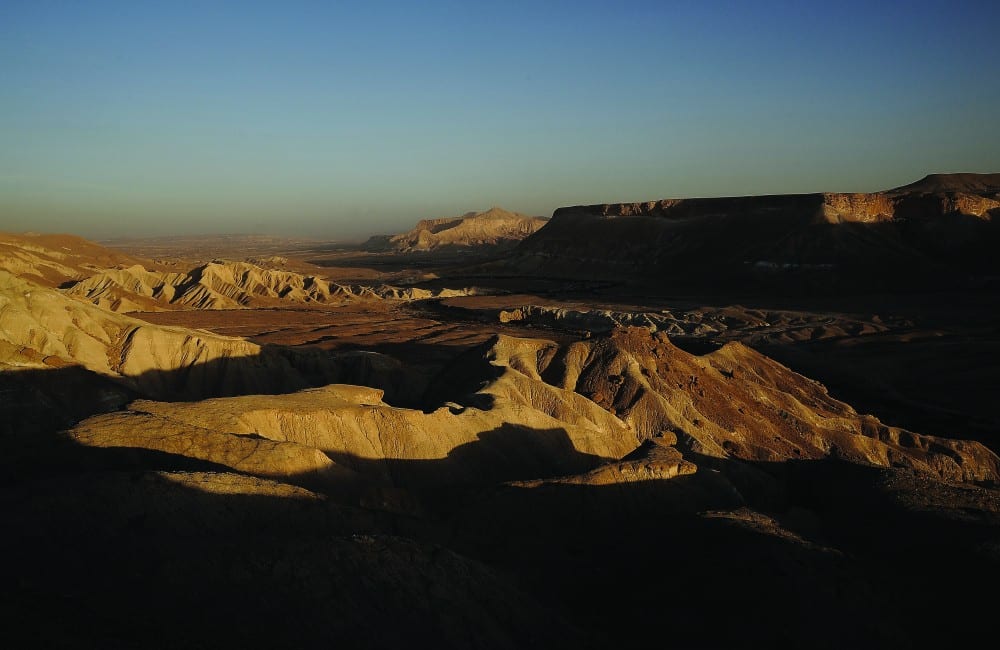This Torah portion carries a promise of Godly assistance in conquering the Land of Israel and blessings for following His commands. Moses warns the people that they will be punished for disregarding God’s word, and reminds them of several incidents in which they had sinned, but mostly focuses on the good that God will bring them if they keep His laws. It also deals heavily with the bounty of the Promised Land.
Articles
The Portion of Va’etchanan (Deuteronomy 3:23-7:11)
In this week’s portion, Moses continues his farewell speech to the people. Here, he repeatedly warns the people against falling into the trap of idolatry. He reminds them of the incident at Ba’al Pe’or, in which the
The Portion of Devarim (Deuteronomy 1:1-3:22)
This portion marks the beginning of the final book of the Torah. After leading the Children of Israel valiantly through the desert for forty years, Moses prepares to part from the people. What follows in the book of Deuteronomy is his farewell speech, delivered over the final six weeks of his life.
The Portion of Masei (Numbers 33:1-36:13)
In this Torah portion, the final portion in the book of Numbers, we review the journeys made by the Israelites in the desert and learn about the plan for their arrival in the Holy Land, including the division of the land. Finally, we return to the story of the daughters of Zelophehad, whose cousins are concerned they will take their heritage with them if the girls marry into another tribe.
The Portion of Matot (Numbers 30:2-32:42)
In this Torah portion, we are taught about vows which can be annulled, about God’s revenge on the Midianites, and about two tribes who wish to hand-pick their land lot.
The Portion of Pinchas (Numbers 25:10-30:1)
Our portion picks up where last week’s left off, in the aftermath of a plague. Phineas is blessed by God for his actions, and a new census of the people is taken. The brotherless daughters of Zelophehad appeal to Moses for a share in the land of Israel, and God delineates the laws of inheritance. God shows Moses the Promised Land, which he will never enter, and appoints Joshua as his successor. The portion ends with a list of the daily and holiday sacrificial services.
The Portion of Balak (Numbers 22:2-25:9)
This week’s portion demonstrates the scope of the Israelites’ reputation during their desert travels. Balak, the king of Moab, hears what befell the Amorites when they stood up to God’s people, and decides he does not want to meet a similar fate. He opts to hire Balaam, a Midianite sorcerer known for the power of his blessings and curses, to rid him of the pesky nation approaching his borders.
The Portion of Chukat (Numbers 19:1-22:1)
This action-packed portion begins with the laws of the red heifer, an unusual ritual which causes the participant to become pure, but those involved in the preparation to become impure. From there, the narrative picks up again with the death of Moses’s sister, Miriam, and a lack of water for the people. Moses and Aaron are told by God that they have failed to sanctify His name before the people, and as a result are destined to die in the desert. In fact, Aaron’s death is also recorded in this portion.
The Portion of Korach (Numbers 16:1-18:32)
This portion deals primarily with the rebellion of the eponymous Korah and his followers against the authority of Moses and Aaron. A cousin to the leading brothers, Korah protests Moses’s concentration of power in the family, insisting the entire nation is holy. Only God’s intervention succeeds in putting down the insurrection and restoring unity to the camp. The portion ends with a reiteration of Aaron’s priestly duties in the service of God, as well as specific gifts to be apportioned to the priests and Levites.
The Portion of Shelach (Numbers 13:1-15:41)
This week’s portion focuses primarily on the Sin of the Spies, which results in God’s decree that the Israelites must wander in the desert for forty years instead of entering the land of Israel directly. It also includes details regarding a number of laws, such as the libations which must be brought alongside certain sacrifices and the separation of a portion of all bread baked for the sustenance of the priests. We are told what must be done to atone for sins and, through the example of the wood-gatherer, what to do with those who violate the Sabbath. The portion ends with the command to tie fringes, or tzitzit, onto the corners of any four-cornered garment.
Start learning the bible
KETUVIM
WRITINGS
What Jews and Christians think

The Israel Bible will succeed in helping readers of Tanakh better understand its geographical context and better perceive some of its contemporary resonances.
Rabbi Dr. Shalom Carmy
Assistant Professor of Jewish Philosophy and Bible, Yeshiva University

When you open The Israel Bible and see… lessons about Israel, you see that Israel is the Torah’s main theme and begin to understand the major role that it plays.
Rabbi Yehudah Glick
Member of The Knesset,
Israel’s Parliament

Jews and Christians share a biblical heritage, and The Israel Bible shows even more clearly that this is the land God chose for the Jewish people.
Pastor Keith Johnson
Founder, Biblical Foundations Academy International

FROM THE SOURCE
Full text of the Hebrew Scriptures in English and Hebrew with select transliterated verses

ALL ABOUT ISRAEL
Unique Israel focused commentary on every chapter

LEARN Hebrew
Proper Hebrew pronunciation of key biblical names and places

SIMPLE & EASY
The Israel Bible comes with a Hebrew alphabet chart, and additional learning sheets







